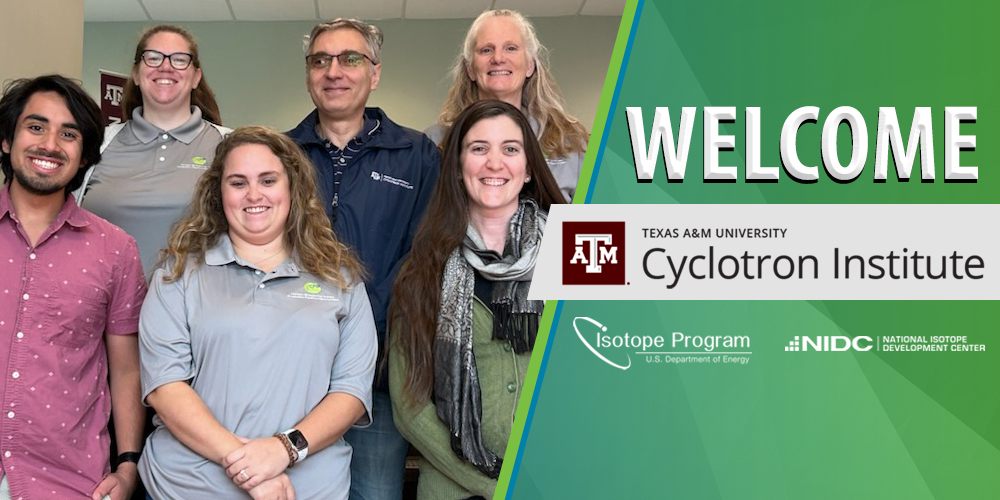DOE Isotope Program Welcomes Texas A&M University Cyclotron Institute to the University Isotope Network
The DOE Isotope Program is excited to announce the addition of the Texas A&M University Cyclotron Institute to the University Isotope Network. Supported by DOE and the State of Texas funding, the Cyclotron Institute has developed Astatine-211 (At-211) production which is now available for routine regional distribution through the NIDC product catalog. The Texas A&M University Cyclotron Institute joins four other universities in the University Isotope Network to supply isotopes produced at their unique facilities.
About Astatine-211
Astatine-211 (At-211) has demonstrated significant potential in the treatment of blood, ovarian, and specific types of brain cancers. However, its short half-life of 7.2-hours presents a challenge in generating substantial quantities necessary for therapeutic doses in patients. Success of At-211 as a cancer therapeutic relies on regional production and distribution of the isotope. The DOE IP is a primary producer of At-211 in the U.S. through the University Isotope Network institutions.
Request a quote
About Texas A&M Cyclotron Institute
The Texas A&M University Cyclotron Institute, a Department of Energy University Facility, is jointly supported by DOE and the State of Texas and is a major technical and educational resource for the state and the nation.
The institute focuses on conducting basic research, educating students in accelerator-based science and technology, and providing technical capabilities for a wide variety of applications in space science, materials science, analytical procedures and nuclear medicine. Approximately 100 Institute members – scientists, engineers, technicians, support staff, graduate students and undergraduate students – are involved in these programs.
Internationally recognized for its research contributions, the Institute provides the primary infrastructure support for the University’s graduate programs in nuclear chemistry and nuclear physics.
The Cyclotron Institute staff constructed, and now operate, a K500 superconducting cyclotron and its advanced ECR ion sources. Together, these provide a powerful arsenal of intermediate-energy projectiles for use in both fundamental and applied studies. A facility upgrade is now underway to expand the capabilities and allow them to accelerate radioactive ion beams. A large complement of sophisticated state-of-the-art detectors and spectrometers provides the associated instrumentation necessary for modern research in the areas of nuclear structure, weak interactions, exotic nuclei, nuclear astrophysics, intermediate-energy reaction dynamics, nuclear thermodynamics, the nuclear equation of state, atomic physics and applied nuclear science.





